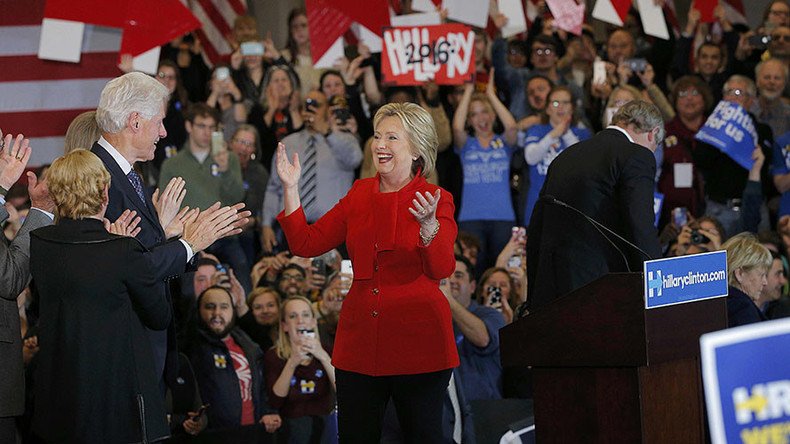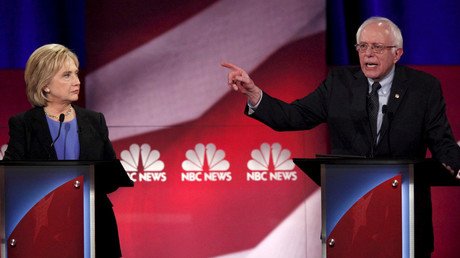Iowa coin flip caucus: ‘Arcane for modern democracy’

Anything about the Iowa caucus is strange for the US or any other modern elections; it is an arcane process for a modern democracy to have, said Andrew Joyce, contributor to the Fusion news website.
RT: How common is it to decide election results through a coin toss? Is it fair?
Andrew Joyce: I don’t think that it is very common at all. In fact I think it is hard to describe anything about the Iowa caucus process as typical in US elections or any modern election that we know of. It is an arcane and sort of strange process for a modern democracy to have.
RT: Hillary Clinton's said to have won six out of six coin tosses. That's quite a streak...but must be gut-wrenching for those who lost?
AJ: It is true! I think if I had to bring one of the candidates with me to Vegas, I guess it would be Hilary Clinton. These coin tosses, we should know, don’t actually determine the number of delegates that will be seated at the Democratic National Convention. In fact they don’t even determine the number of delegates that are going to be seated at the state level convention, the process is so complicated and layered that they were really fighting over delegates …that go to the counties that then get factored into delegate equivalents…
RT: Why is the caucus system so complex?
AJ: The funny thing is that the state parties get to decide exactly how these caucuses are run. So, on the Republican side you’ve got a much simple, more straightforward sort of caucus. It is a lot more like what we think of a primary regular election to be: people came, they cast ballots, they left. On a democratic side, they are sort of wedded to this old caucus form... And I can’t really tell you why the Democratic Party is so tied to it other than there is sort of nostalgia and pride in the Iowa caucus process, especially among civil servants and people who live and work in Iowa. Iowa is proud of itself being the first in the national primary challenge.
RT:Hillary has publicly proclaimed her victory in Iowa. Do you agree with her assessment?
AJ: I think that the race is incredibly close and … even if she eked the most delegates in the end there, the media victory is certainly one for Sanders, because he is going to move on from this having outperformed what anyone really expected of him at the beginning, let alone even a few weeks ago. And he is now heading into New Hampshire, where he is up by as much as 20 points.
I should say that Clinton did definitely win in terms of delegates, and that is because another crazy fluke in the primary caucus system. That doesn’t just happen in Iowa, but happens nationwide where we have something called super delegates. And these are mostly only a thing on the democratic side where party elites basically just get to choose, which candidate they want – independent of what the voters actually vote for.
RT:Bernie Sanders wants the Democratic Party to release the raw vote count. What's he hoping could come from that an overall win, could the figures differ so much?
AJ: … I don’t think that he or anyone in this campaign really thinks that the raw vote counts are going to change the outcome of the election. As I understand, what Sanders is really looking for – is a couple of key precincts where there are problems with monitoring the votes, there were supposed to be state party officials there to monitor the votes – but there weren’t, the Sanders campaign alleges in as many as 90 precincts. So that is a question about who was monitoring these elections at the time and what sort of accountability there was.
The statements, views and opinions expressed in this column are solely those of the author and do not necessarily represent those of RT.













